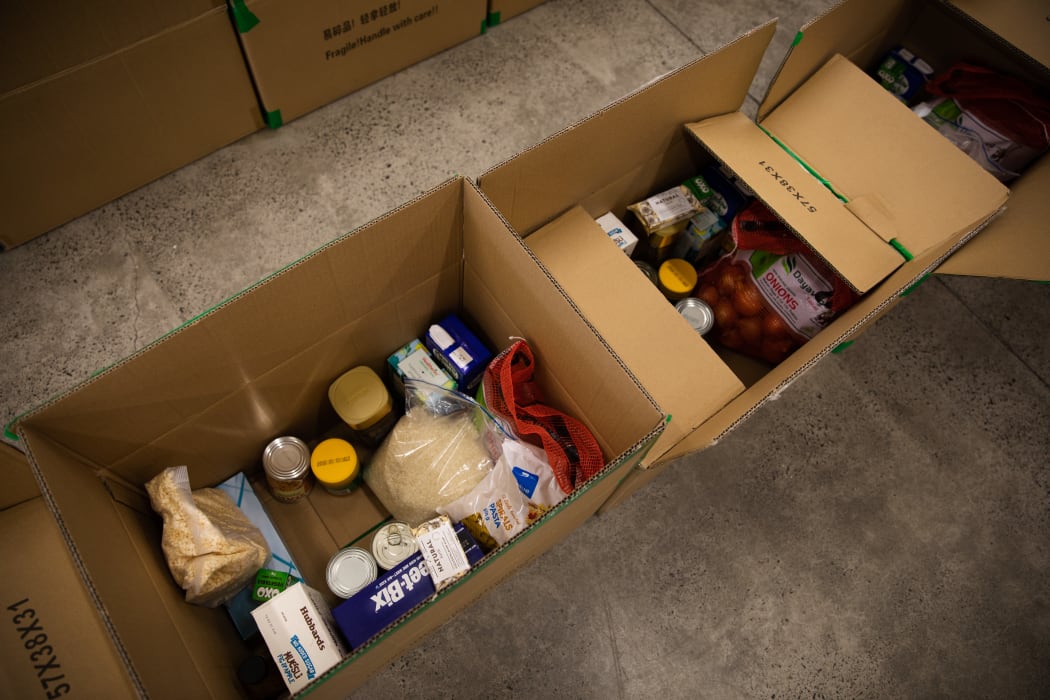Over the past three months, the demand for Te Tāpui Atawhai Auckland City Mission's services has been the highest in the organisation's 100-year history.

Photo: RNZ / Simon Rogers
The mission's staff are worried it will not be able to provide up to 9000 boxes of food and tens of thousands of presents for families who would otherwise go without this festive season.
Missioner Helen Robinson said the demand showed how many people were living without enough money for food.
It is currently distributing more than 1600 food parcels every week, more than double what was being given out pre-Covid-19.
"We're conscious of people particularly who are on casual labour or even on contracts, people who have been receiving the wage subsidy gratefully but if their rent or mortgage payments constitute a significant part of that, that what's then left over is very, very limited."
The City Mission plans to deliver 9000 food parcels and 30,000 gifts in the two weeks leading up to Christmas, which Robinson said was its capacity.
"In fact, we've been doing the most of what we can do for the last three months so this planning for Christmas is truly kind of the last draw of breath that the mission can give this year to respond to the level of need."
She suspected there would be more need in the community than what the organisation was able to respond to.
The mission is seeking donations of money, food and Christmas presents to support those who were struggling.
West Auckland Budget Service operations manager Fiona Snijder said access to food was an issue for nearly everyone that walked through the centre's doors.
"Food has become very expensive, our power has increased even our water seems to have got a little pricey as well, so our basics are expensive, let alone the rent.
"We are finding that nearly every client that is coming through is needing assistance with food."
Women's Refuge chief executive Dr Ang Jury said since the pandemic began, people's needs were more complex and they were facing tougher issues, mainly due to inadequate incomes and poor housing.
"Domestic violence creates an environment of chaos in people's lives and what we've seen with Covid is an additional layer of chaos.
"It's added a whole new layer to that difficult environment."
Christmas was a particularly tough time, and kids at home on school holidays meant additional demands for food.
Salvation Army Community Ministries national director Jono Bell expected this Christmas season to be one of the busiest as the charity was already seeing an increased demand for services.
"There's definitely the financial hardship that people are experiencing and part of that for us at Christmas time is trying to provide a bit of relief and hope, having some gifts having some Christmas hampers that we're able to provide for people."
Child Poverty Action group economic spokeswoman Susan St John said while food banks and charities played an important role in the community, they could not reduce poverty.
"Obviously we need private charity, particularly at the moment because you have to meet the immediate need but that's no long term solution for a developed country, we have to move to a situation where people have enough money to cover their basic needs."
She said the government had the ability to make changes, particularly to the Working for Families tax credit system, to address child poverty.


